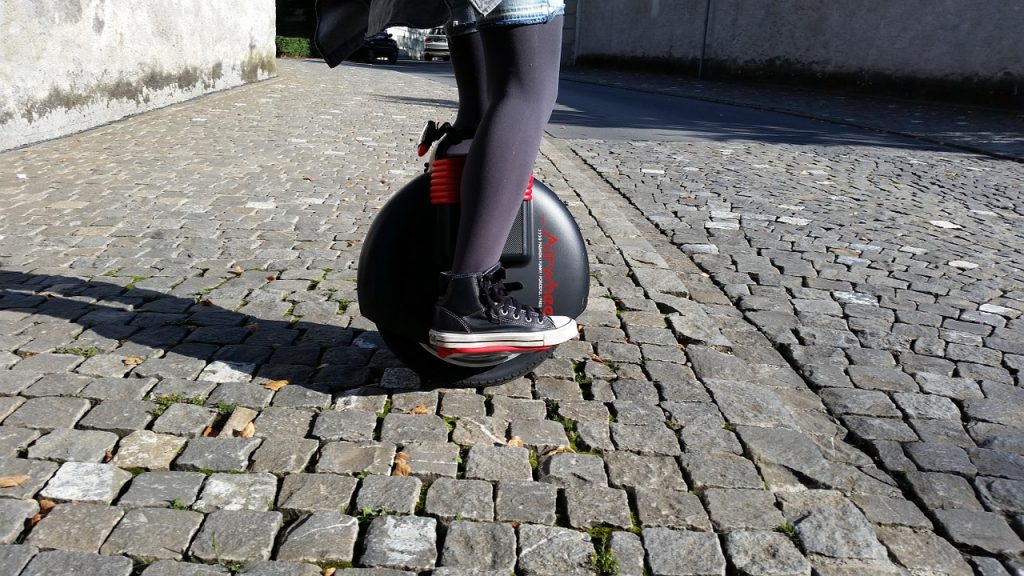So, is it legal to ride an eScooter or an electric unicycle? This article will explain the laws surrounding these personal transportation devices. While they are not considered full motor vehicles, you do need to register them as such. The laws regarding riding an electric unicycle will depend on where you live. One of the main differences between an electric scooter and an electric unicycle is the control the rider has. Electric scooters have handlebars that enable better control. An electric unicycle, on the other hand, requires the rider to lean backward to activate the brake. While these two personal transport devices are relatively safe, they lack sideways maneuverability and can be a bit awkward if you’re a new rider.
Electric Unicycles Are Personal Transport Devices
These personal transport devices are becoming popular for a variety of reasons. Most people love to travel on the go, and a scooter or electric unicycle can help them get around town with ease. Both scooters and unicycles have a number of benefits, including increased comfort and ease of maintenance. There are also safety issues with electric unicycles, so owners should exercise caution when using them.
Self-balancing electric unicycles, also called eWheels or electric wheels, are compact and can be carried on public transportation. Since they are small, they can be stored in a backpack or tucked under a table. They also can be taken into public bathrooms, where they don’t need to be locked up. Another electric unicycle is the self-balancing Segway PT. There are also some single-rider electric unicycles available. These devices utilize computer-controlled gyroscopes and accelerometers to balance.
Although electric unicycle is considered a personal transport device, it is considered a motorized vehicle, which means it needs to be licensed and registered. They also require insurance, licenses, and taxes, like regular motorcycles and scooters.
They Are Not Full Motor Vehicles
While motorized unicycles and scooters are not full motor vehicles, they are classified as such. They require licenses, registration, and insurance, just like a bicycle. Most states consider electric unicycles to be motorized bicycles, so you should check with your local DMV. You can also search for electric unicycles for sale on Internet forums.
An electric scooter’s design is more advanced than that of a unicycle, but it can still be dangerous in some areas. For instance, e-scooters cannot be parked in parking lots or on public streets, and electric scooters must be parked in the garage. However, scooters require no parking space, which is great if you’re a frequent commuter.
While electric scooters are not full motor vehicles, they are extremely affordable compared to their gasoline-powered counterparts. Moreover, these electric vehicles have a steep learning curve that may turn off the casual commuter, who might find it difficult to maneuver. Nevertheless, there’s nothing wrong with electric scooters and unicycles if you’re looking for a fun way to commute.
The main difference between an electric scooter and an electric unicycle is their design. An electric unicycle’s steering mechanism is very similar to that of a motor-driven bicycle. Both vehicles have pedals that help you remain on the unicycle, but no handles to provide momentum. As with electric scooters and unicycles, these two vehicles are not full motor vehicles and can be dangerous in certain environments.
They Are Allowed On Highways, Bike Lanes, And Sidewalks
When riding electric scooters or unicycles, be sure to obey all laws. They must not be driven on footpaths and should not share space with pedestrians. Some states allow them on sidewalks, but be sure to check first. In Wisconsin, for example, you’ll have to give an appropriate arm and hand signals if you want to ride on the sidewalk.
While electric scooters and unicycles are legal on sidewalks, bike lanes, and highways, some municipalities have banned them. Fortunately, these devices have become more popular in recent years. While some municipalities are banning them, there is no reason for them to be banned in Maine. Most states regulate them similarly to bicycles.
While electric scooters and unicycles are legal on sidewalks and bike lanes, some cities have banned them because of safety concerns. Despite their legal status, these devices have been vandalized in the past. But they are now legal on New York’s streets, bike lanes, and highways.
Although electric scooters and unicycles are legal on sidewalks and bike lanes, they have caused many complaints and are not welcome in most public areas. New Jersey, however, has decided to make them legal by passing an ordinance that allows two companies to operate legally in the city. While the law permits their use on sidewalks, riders must wear a helmet and be at least 15 years old.
